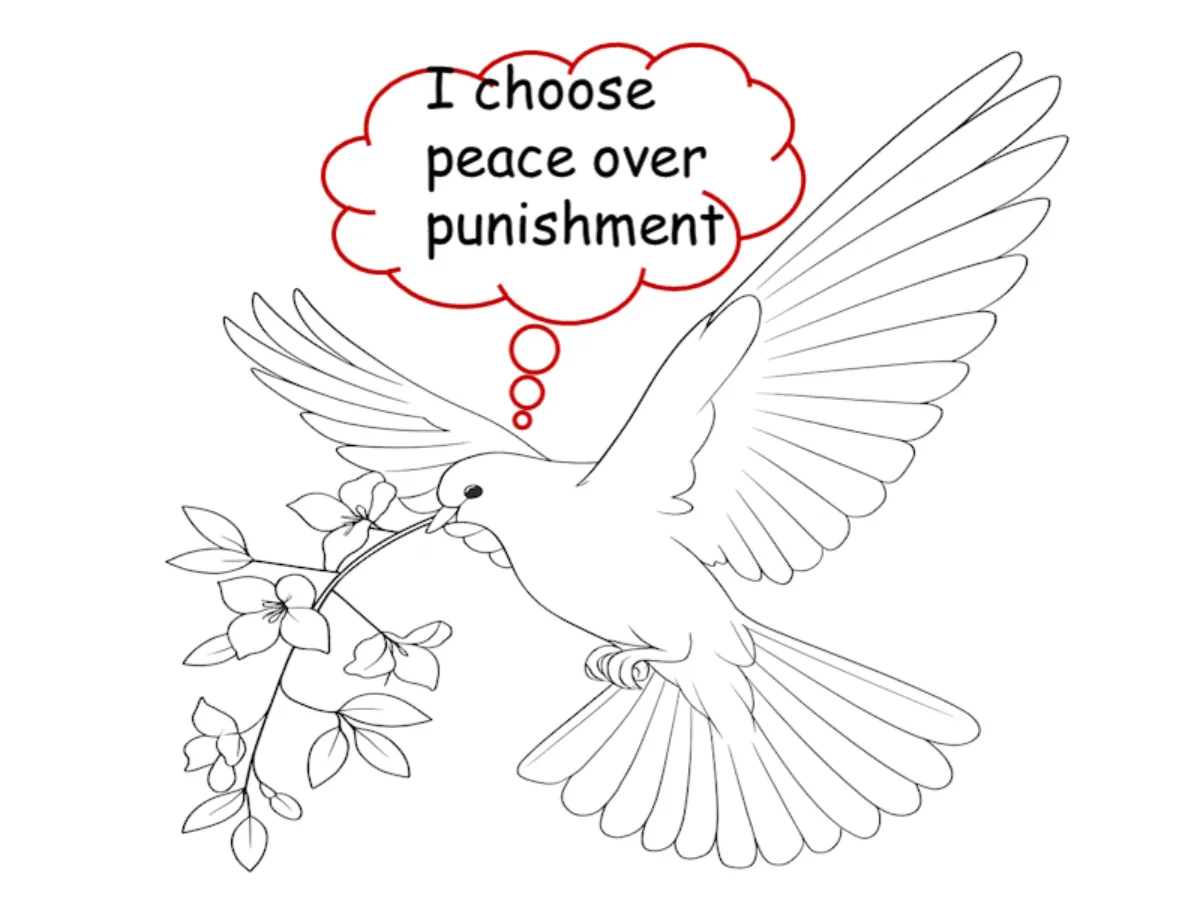 forgive_I choose peace over punishment
forgive_I choose peace over punishmentFORGIVENESS
Forgiveness in Relationships: The Bridge Between Pain and Peace
The Path to Healing, Trust, and Lasting Love; Why Relationship Forgiveness is Essential, The Damage of Unforgiveness, and How to Truly Let Go of Past Pain
What Is Forgiveness in a Relationship?
Forgiveness in a relationship means making a deliberate choice to release resentment, anger, or the desire for revenge after being hurt by your partner. It does not mean forgetting what happened or excusing the mistake; it means consciously releasing emotional pain so relationship healing can take place.
At its core, forgiveness says: “I choose peace over punishment.”
It’s an act of emotional courage — not approval of wrongdoing, but a conscious decision to move forward with clarity and compassion.
Why Is Forgiveness Important for Long-Term Relationships?
Forgiveness is essential because no relationship is immune to disappointment or pain. Two imperfect people trying to build lasting love will inevitably make mistakes. The ability to embrace relationship forgiveness determines whether the bond heals and grows or fractures and fades.
When forgiveness is present in a partnership:
Trust can be rebuilt through honesty and effort.
Emotional safety returns, allowing both partners to be vulnerable again.
Love deepens, as both partners learn empathy and humility.
Resentment releases, making space for renewed connection.
Forgiveness isn’t just about your partner — it’s about freeing yourself from the emotional weight of the past so your lasting love can breathe again.
The Damage Caused by a Lack of Forgiveness (Unforgiveness)
A lack of forgiveness doesn’t just hold the other person hostage — it holds you there too. When anger and bitterness remain unprocessed, they quietly poison the emotional connection in the relationship.
Consequences of unforgiveness in a relationship include:
Emotional distance – Partners stop opening up out of fear or guilt.
Repetitive conflicts – Old wounds resurface during new disagreements (known as "score-keeping").
Loss of trust – Without forgiveness, every mistake feels amplified.
Resentment and blame – Negativity replaces compassion and warmth.
Emotional exhaustion – Carrying anger and bitterness drains joy and closeness.
Ultimately, unforgiveness blocks intimacy. You can’t feel deeply connected to someone you haven’t emotionally released.
Typical Behaviors Showing Lack of Forgiveness
Unforgiveness often hides behind defensive, controlling, or passive-aggressive behaviors. Signs of holding a grudge include:
Bringing up past mistakes repeatedly during current arguments.
Holding grudges or keeping an emotional score of offenses.
Withholding affection or communication as punishment.
Reacting with sarcasm or passive-aggression.
Avoiding vulnerability or refusing to trust again.
Believing “I’ll forgive only when they change.”
These patterns show that past pain has not yet been truly processed, leaving an open wound that continues to affect current interactions.
How to Practice Forgiveness for Self-Healing
Forgiveness begins as an inner choice, not an external agreement. Even if your partner never apologizes, you can still choose emotional release.
Best practices for self-forgiveness and releasing pain:
Acknowledge your pain honestly – You can’t heal what you don’t name.
Separate the person from the behavior – Disapprove of the action, not the human being.
Understand the “why” – Compassion often grows from context (though context is not an excuse).
Decide to release resentment – Forgiveness is an act of will, not an emotion that magically appears.
Set new boundaries – Forgiveness doesn’t mean tolerating repeated harm; it means protecting yourself moving forward.
Give it time – Forgiveness is a process, not a one-time event.
When you forgive, you reclaim your peace — not for them, but for yourself.
How to Handle a Partner Who Struggles to Forgive
If your partner finds it difficult to forgive, patience, consistency, and a focus on rebuilding trust are vital.
Take full responsibility – Apologize sincerely without defending or minimizing the hurt.
Show consistent change – Rebuild trust through actions, not just promises. This is the most critical step.
Allow them space to heal – Forgiveness can’t be rushed or demanded.
Be transparent and empathetic – Listen to their lingering pain without self-justification.
Encourage professional help if needed – Some deep emotional wounds require guidance from couples therapy to heal fully.
Forgiveness grows in an environment of safety, accountability, and compassion — not pressure or guilt.
Final Thoughts on Relationship Forgiveness
Forgiveness is not about erasing the past — it’s about choosing not to live in it.
It’s what transforms pain into wisdom, blame into understanding, and disconnection into relationship healing.
In every lasting relationship, the ability to forgive acts as the bridge between hurt and hope.
Because love isn’t about perfection — it’s about choosing to begin again, over and over.
 thelovemaze.com
thelovemaze.com